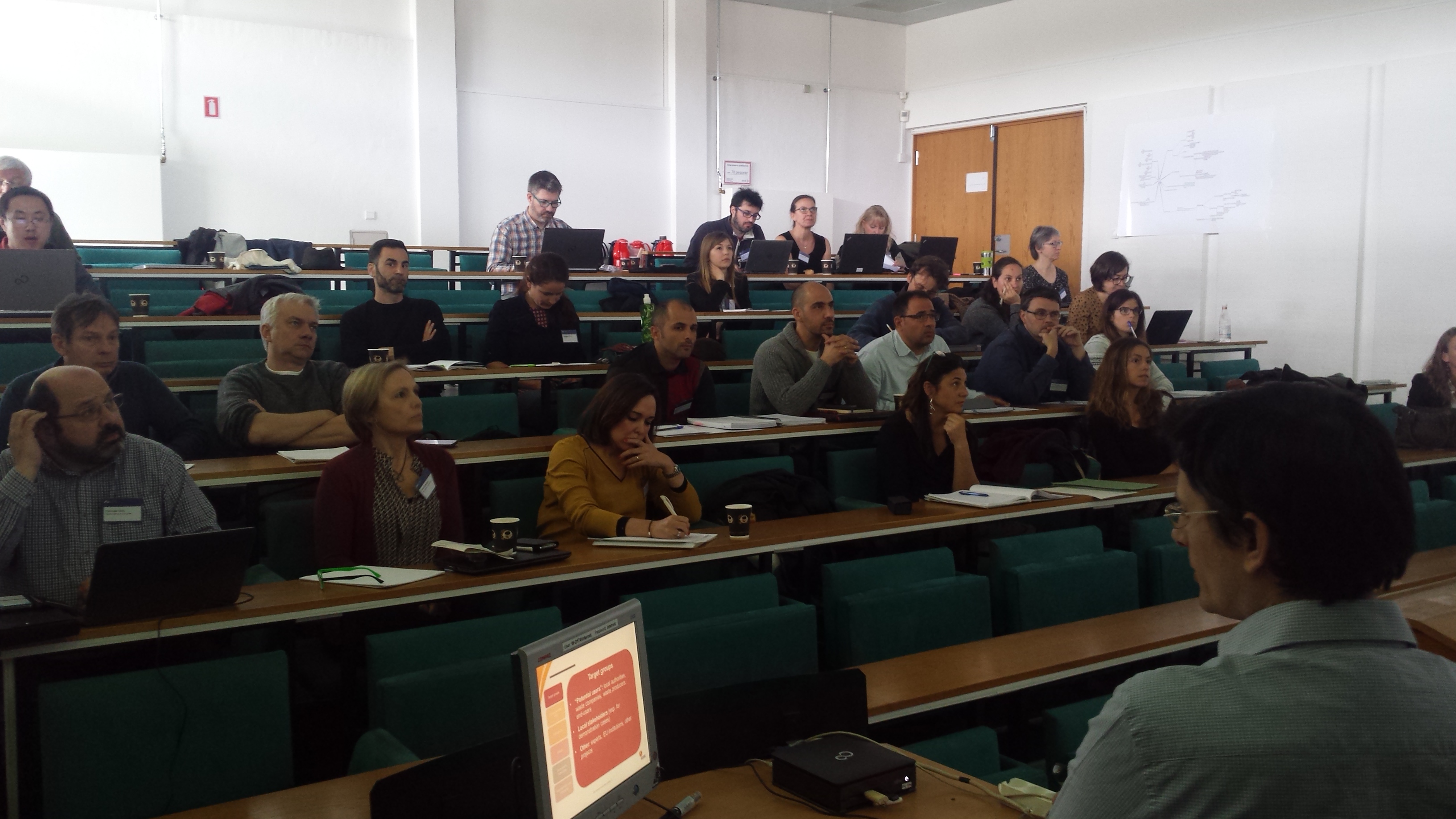Waste experts from Portuguese public waste authorities met on the 10 May in Lisbon during a workshop organised by APESB, the Portuguese Association of Sanitary and Environmental Engineering, supported by ACR+.
The event focused on bio-waste collection, a burning issue in Portugal where many municipalities are considering the implementation of source separation to meet the recycling targets set by the National Waste Strategy, reduce the quantities sent to disposal, and produce valuable compost. At the same time, the event was a perfect opportunity to present DECISIVE in a country where the project doesn’t have any partners. The workshop came at a very good time, when the DECISIVE consortium is building up its target group and creates synergies with external stakeholders. Jean-Benoit Bel from ACR+ has presented the project, explaining what can be expected from it and what solution will it offer, what was perfectly fitting into the topic of the workshop.
The European Commission presented the bio-waste strategy within the framework of the coming Circular Economy Package. Bio-waste is regarded as a significant fraction to reach the ambitious targets for municipal waste recycling and for the reduction of disposal. The Commission is in favour of a food waste reduction target and an obligation for selective collection for bio-waste. ACR+ presented benchmarking elements for bio-waste collection, highlighting the diverse approaches implemented at local level.
In addition, three waste experts presented very practical elements linked with local bio-waste management: Ramón Plana detailed decentralised composting schemes set in the north of Spain, Frédéric Cuypers presented how the City of Antwerp is shifting from a door-to-door system to underground containers, leading to higher quality, while Raphael Rossi from the Italian public waste company Formia Rifiuti Zero shared his extensive experience in various Italian cities. This last presentation showed that impressive sorting performances can be reached throught the use of door-to-door collection and progressive Pas-as-you-throw schemes, even in dense and touristic contexts.
Portugal faces significant challenges regarding waste management, yet the in-depth discussions between waste experts contributed to propose actual solutions. The cities of Lisbon and Porto are both now designing the first steps of household bio-waste collection schemes.

